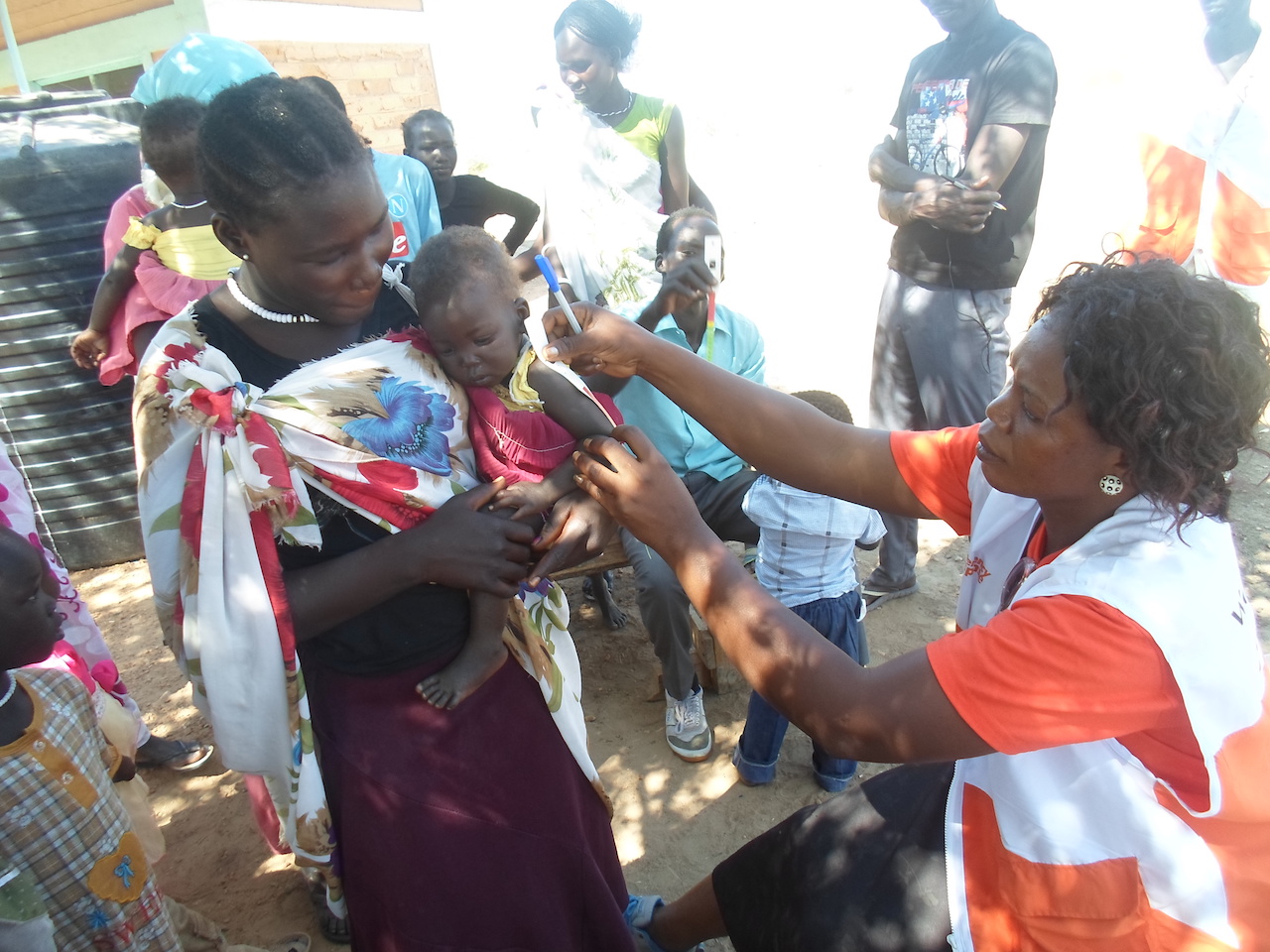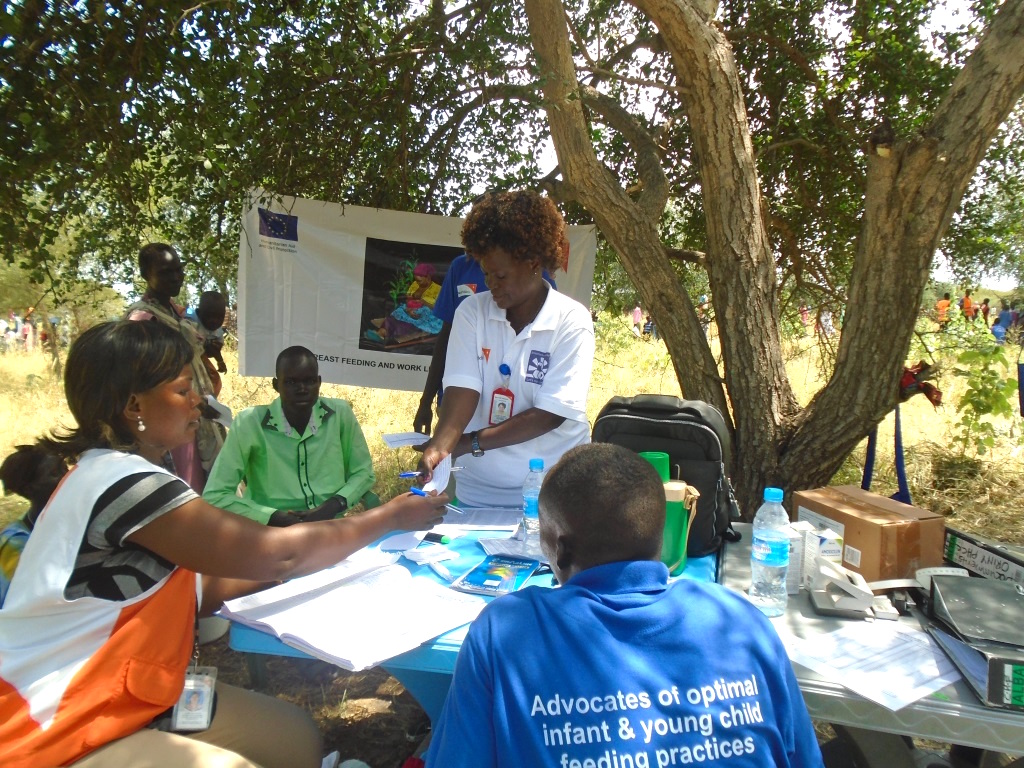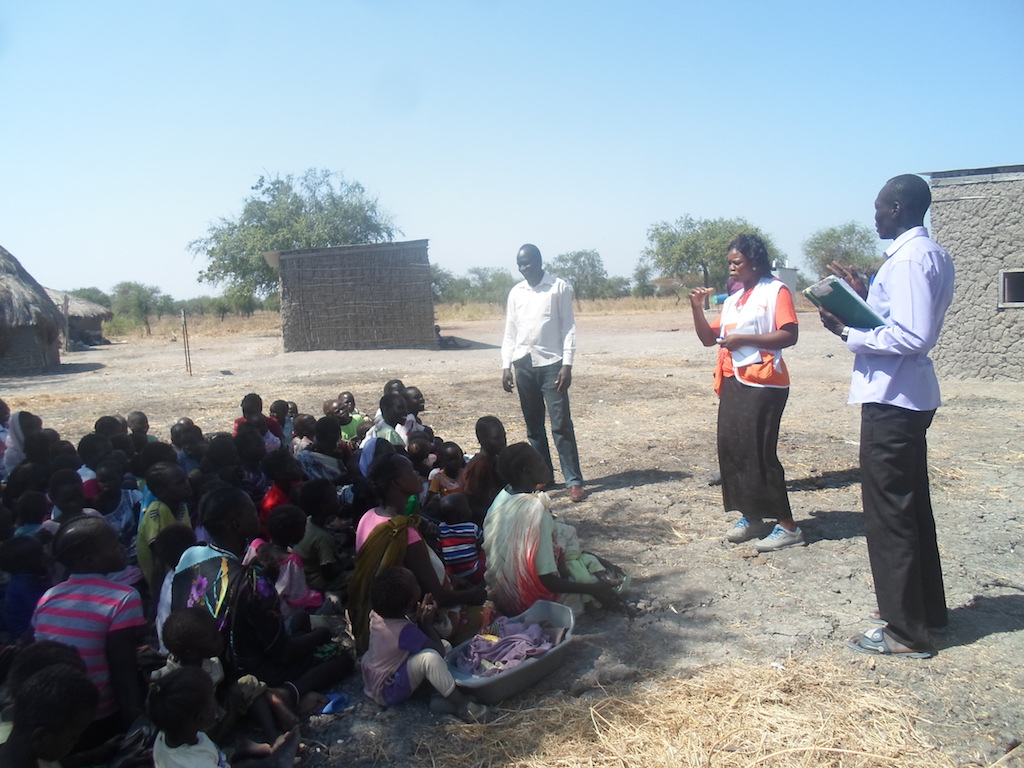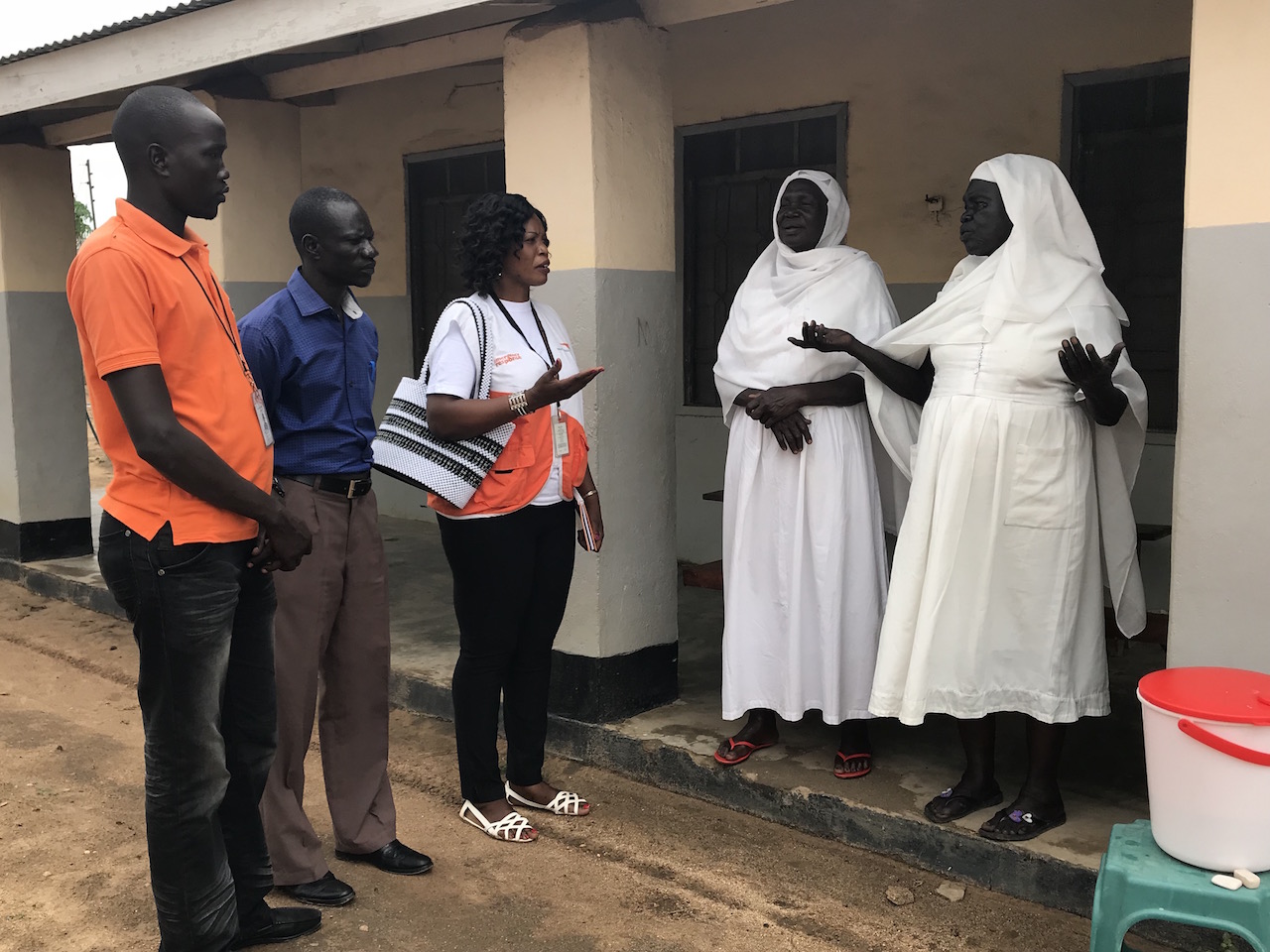Walking for miles as a humanitarian took me to South Sudan’s remotest and most difficult places
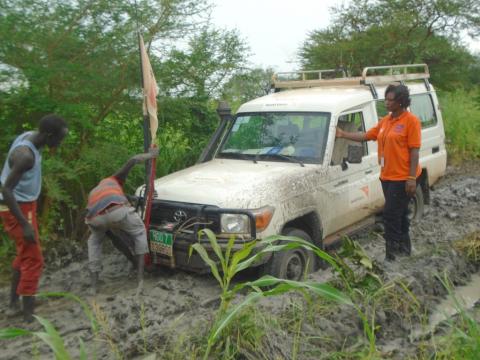
By Gloria Luka, Nutrition Project Coordinator
My father separated from us in the middle of the conflict in Sudan in 1991. A strong woman, my mother Cecilia decided to take me and my siblings to the north in Khartoum, where I eventually completed my degree in Nutrition through the support of humanitarian agencies. I sold tea on the city’s streets to support my needs and my own transport to school. I also tried to help my siblings.
For more than a half decade, I worked in Darfur with an Italian organization named Coordinanto Delle Organization Per Il Servizio Voluntario and later with Medicins Sans Frontiers – in different national positions such as nutritionist and primary health care officer. I learned handling essential drugs supply, child survival and geriatric nutrition.
With over a million South Sudanese children suffering from malnutrition, Gloria's work is both daunting and urgent.
My job took me to the many troubled spots in Darfur and made me realize the opportunities that can be harnessed in health promotion and nutrition education. I joined World Vision on September 2014 as Nutrition Field Coordinator and later promoted to Nutrition Project Coordinator.
The work was filled with a lot of daunting challenges. In one assessment activity I was part of in Upper Nile State, we have to walk for 15 hours to reach Gorwai village.
The requirement for walking doesn’t seem to stop. In one emergency response I joined, the work took me to the very remote areas of South Sudan that cannot be accessed by vehicles especially during the rainy session. I got used to walking for hours mostly deep in the mud.
Walking for miles and days to do her work, Gloria finds fulfillment that she is able to meet people in these communities.
While on field work in Wau Shulluk village sometime in 2016, a fighting ensued in the border close to where we were. We had no idea about what was going on and slept soundly during the night. Early in the morning, we were roused and told by the local authorities to quickly move out because most villagers have fled at night for safety. I was horrified to realize our lives were in danger while we were sleeping.
We walked without food for one day and got drenched by the heavy rain while carrying our quick-run bags and tents. A helicopter that was sent by the office picked us up and brought us to Rumbek town where we rested and flown to Juba the following day. I was too worried and was walking too fast I even have to be called back by my companions as I left my group behind.
My biggest worry at that time was how to swim in the River Nile if ever we had to. I do not know how to swim and even if I do, I will surely not go past the crocodiles alive. Along the way we even saw skeletons of people who were not buried properly. I just thought we will be like them if we do not survive the experience.
In another field visit in Jonglei State, after our work was completed, we were supposed to be picked up by a helicopter but did it not come. We have to walk for eight hours, slept in the next village and walked again early morning until we arrived at the place where we can take another rest. My legs gave way, my muscles were too sore that my companions have to pull me up and help me move around. It took five days before we were able to recover and take our flight back to Juba.
Educating the people and making them understand that some traditional practices are dangerous to their health, especially on children, are part of Gloria's campaign.
I could say, the work is tough as a humanitarian, especially in South Sudan. My lesson is to always be prepared and plan well before going in these remote communities. There is no easy way to go back when something happens in the field.
But leaving your work incomplete is also not a good option. You have to consider the funds spent carrying out the activities. For me, they need to be accomplished because people need the assistance. We carry that burden in our shoulders all the time.
My dream as a humanitarian is to see that these remote areas without access to food, water and basic services will one day be reached and provided with what thee people needs. Many of them need psychosocial support because of the atrocities they went though. Work still beckons for humanitarians in South Sudan and my journey must continue.
Gloria discusses some maternal health issues with the nurses and midwives in Kator Primary Health Care Center in Juba.
